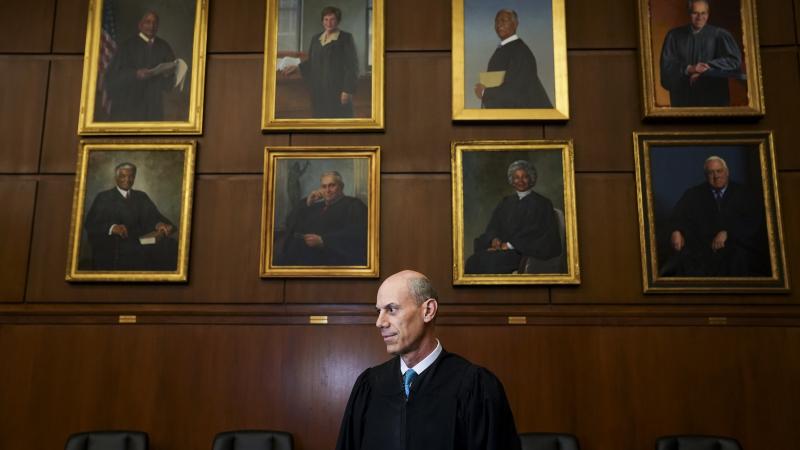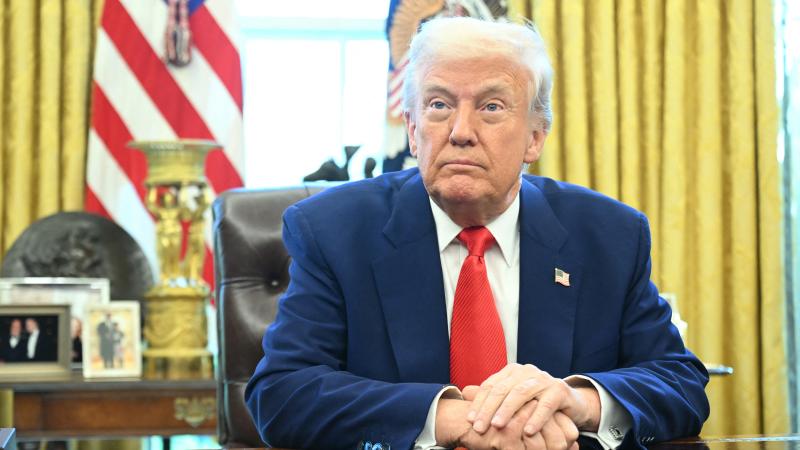State Department hides vast majority of emails in FOIA suit about funding disinformation group
Feds must show "reasonably foreseeable harm from disclosure" to keep secret the internal discussions that may explain State Department relationship with Global Disinformation Index, FOIA plaintiff says.
A U.S. Department of State office called Global Engagement Center deliberated at length on how to respond to reporters asking about its funding of a group that tries to convince advertisers to shun predominantly conservative publishers, with the goal of starving them out of business.
The details that GEC staff discussed, however, are being kept secret and away from the prying eyes of the press and public. Heavily redacted documents were obtained this week by former Education Department lawyer Hans Bader as result of his Freedom of Information Act suit in the District of Columbia federal court against the State Department. The suit sought documents concerning the London-based Global Disinformation Index, a non-profit organization that claims its mission is "to disrupt the business model of disinformation."
The GEC is known for funding anti-populist internet games abroad, such as "Cat Park", which led the Foundation for Freedom Online to call the GEC "the global-facing political censorship arm of the Internet."
Even the names of public officials have been removed from the GEC emails, which Bader told Just the News was "likely wrong" under the "personal privacy" FOIA exemption relied upon by the State Department.
Bader sued the State Department in his role as trustee of his family foundation in April when it said it couldn't respond to his FOIA request within the statutory maximum 20 days, due to unspecified "unusual circumstances," and provided no estimated date of compliance.
A federal judge ordered the department in July to review 500 pages a month, the standard for FOIA cases, on a rolling basis, rejecting its proposal for 450 pages every six months. The first 73 vetted pages — scanned so as to prevent text searches — repeatedly invoke the "personal privacy" and "deliberative process" FOIA exemptions. Just the News created a searchable version.
The State Department doesn't have to explain the redactions until it files a motion for summary judgment, so "I don't exactly know their basis for redacting so much, at this point," Bader wrote in an email.
"They could fail to show that the redacted material is covered by deliberative process privilege, or even if it is privileged, they could fail to show that there is reasonably foreseeable harm from disclosure, either of which could lead to the redacted material being ordered released," he said, citing a 2021 appellate court ruling in a lawsuit against the FBI.
Asked to justify the redactions in detail, a State Department spokesperson told Just the News it "does not comment on matters under litigation."
The Global Disinformation Index maintains a "Dynamic Exclusion List" that purports to objectively rate certain news organizations as a "high risk for disinformation." Advertising technology companies and platforms, such as livestreaming juggernaut Twitch, an Amazon subsidiary, license the data from GDI to keep themselves from funding blacklisted entities.
The 10 "riskiest" websites in its December U.S. report lean conservative or libertarian. The Federalist, Newsmax and American Spectator were rated "maximum" risk, and the New York Post, Reason, RealClearPolitics, Daily Wire, The Blaze, One America News Network and American Conservative were rated "high" risk.
Washington Examiner reporter Gabe Kaminsky's series "Disinformation Inc." revealed that GEC and the National Endowment for Democracy, a State-funded private foundation created by Congress, together provided $330,000 to GDI. According to the documents obtained by Bader from his FOIA suit, $100,000 of that came from GEC's Disinfo Cloud, a platform used by several U.S. agencies that was run by Park Advisors.
NED responded to the disclosure by cutting off future grants for GDI while emphasizing its funding was designated for China-focused work. GDI's website still lists Disinfo Cloud as a funder even though GEC stopped sponsoring it at year's end and its website is now defunct.
The reporting prompted congressional scrutiny from the House Oversight Committee, House Foreign Affairs Committee and individual members including Rep. Darrell Issa (R-Cal.)
The emails turned over by the State Department are not devoid of all information. For example, covering February to early May, emails show staff discussing how to respond mostly to Kaminsky as well as reporters for the Washington Times, Wall Street Journal, the Daily Caller News Foundation and Fox News. Some are redundant.
In the documents obtained by Bader, several times staff appear to be sharing draft statements and seeking approval to send them to reporters, including for a "DISINFO CLOUD GUIDANCE FLASH CLEARANCE." Those redactions cite the "internal deliberations" exemption.
The names of most State Department officials were consistently redacted in the documents sent to Bader, hidden under the "personal privacy" exemption, as well as their email usernames, making it difficult at times to tell who is writing what.
A handful of job titles filtered through unredacted, including GEC's director of technology engagements and public affairs specialist, and State's senior congressional advisor on public diplomacy and public affairs and a press officer for global public affairs.
Public employees' names "are not usually sensitive information that can be redacted" under the "personal privacy" exemption, Bader said.
Just the News found a job listing for a GEC "public affairs specialist" through the federal contractor Tuvli, which would technically be the specialist's employer, rather than the State Department. Bader said contractors are "usually" covered by the exemption, so this particular redaction could be legitimate.
"I'm copying [redacted] who would have the pulse on this in GEC. He shouldn't keep bothering you all in Legal Affairs," an email in a Feb. 27 chain says, indicating a reporter went beyond media contacts for an answer. "In the attached correspondence chain from earlier this month, instructions not to respond," another email in the chain says.
This chain shows up twice, once redacting a reporter's name — WSJ's Michael Gordon, a national security correspondent — and once leaving it in. Reporters' specific questions in request forms were not redacted, and the documents include previous agency responses that may be redacted elsewhere.
One email includes an attachment titled "Response Rep. lssa Original" in a chain mentioning "one of the many congressional correspondence responses." Assistant Secretary of State for Legislative Affairs Naz Durakoğlu appears to be referenced here, relaying "a question from Naz."
The department's principal deputy spokesperson Vedant Patel, by contrast, was consistently identified — but not the content of his suggestions. One of the few substantive answers given refers to the $100,000 awarded to GDI via Park Advisors.
The redactions appear to be made on an inconsistent basis. Sometimes the two exemptions are cited together, including in a list of clearances and in emails that include both possible draft statements and names of officials. Many redactions are short, suggesting first names.
The only extended unredacted section features an unidentified department spokesperson's April 11 response to Gordon concerning Twitter Files disclosures about GEC, which came out a month earlier.
While GEC "does maintain dialogue with social media platforms," it does not "tell social media companies what to do" or "focus on U.S. social media accounts," the response says.
"The GEC did not fund GDI to study, analyze, or report on social media platforms or accounts inside the United States," and the terms of the award prevented its use for "any other GDI project or purpose." GEC "does not suppress narratives" such as the COVID-19 lab-leak theory.
The response also quotes a March 13 media briefing with Special Envoy James Rubin, coordinator of GEC. "We are not trying to decide what is true" and "we don't content moderate," he said.
GEC has "no contractual relationship with Hamilton 68 nor its current version, Hamilton 2.0" and provided no funding "directly or indirectly" to the dashboard of Twitter accounts "linked" to Russia, the spokesperson's response says, referring to the GEC contractor who helped create Hamilton 68 but claimed it was a side gig.
The April 11 response admitted one mistake: GEC incorrectly characterized as "suspicious" a sample of 5,500 accounts to Twitter and "corrected the record" a day later but never asked Twitter to "take action" against them.
The Facts Inside Our Reporter's Notebook
Documents
Videos
Links
- funding anti-populist internet games abroad
- Global Disinformation Index
- sued State as trustee of his family foundation
- federal judge ordered State in July
- 2021 appeals court ruling
- "Dynamic Exclusion List"
- December U.S. report
- "Disinformation Inc."
- cutting off future grants for GDI
- GDI's website
- GEC stopped sponsoring it
- congressional scrutiny from the House Oversight Committee
- House Foreign Affairs Committee
- federal contractor Tuvli
- Twitter Files disclosures about GEC















